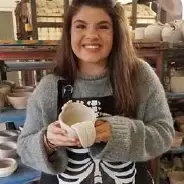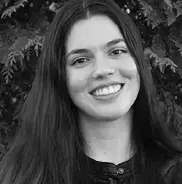Forensic Chemistry to Forensic Dentistry:
Funding the interdisciplinary nature of forensic science


College Scholars provides a plethora of resources to its students. From scholarships to network connections, the benefits are plentiful. This inspired two students, Jandi Palmer and Sarah Troyer, to form an organization that would provide this to other students interested in the same field. They bonded over their mutual love for forensic science and collaborated to create the university’s first Undergraduate Association of Forensic Sciences (UAFS), an outlet for all students pursuing a career in forensics no matter their major.
Historically, UT has been known for its Forensic Anthropological Center (FAC), also known as “The Body Farm,” which has provided groundbreaking research in everything from decomposition to trauma analysis. With a facility as unique as this, it is no wonder the university draws in many students to pursue a career in forensic science. Forensics at UT, however, is centered on the anthropological aspects and not on the other areas that contribute to the field. Since the 1980s, Professor William M. Bass, a prominent pioneer in forensic anthropology, allowed for the expansion and growth into what we now know as the anthropology department. The anthropology department provides a well-rounded and well-funded home for all students interested in that field. Students can volunteer at the FAC doing skeletal processing, getting familiar with lab settings, working in the Bass Skeletal Collection, or getting hands-on experience at the facility by aiding in research. The resources, although not exclusively open only to anthropology majors, never seemed to radiate outside the department. Students in other majors often do not know about the accessibility of the FAC,
the valuable coursework, or the current research being done in forensics. Troyer and Palmer thought that this was a problem. Forensics is much larger than biological anthropology and incorporates many sub-disciplines such as sociology, dental medicine, and even engineering. Additionally, the natural sciences such as chemistry and biology play a role in forensics. The reality is that forensics is made up of law enforcement, forensic anthropologists, chemists and biologists, healthcare professionals, lawyers and more—coming together to solve the complexity of criminal cases. Students interested in forensics would benefit from a broader view of the field.
UAFS is a group that aims to train an interdisciplinary and compassionate group of future forensic scientists from all backgrounds, preparing them for the reality of forensic work in their future. The club offers its members a connection to forensic workers in Knoxville and beyond, fuels their passion to work within this field, and trains students to be compassionate when working with victims and their families. Overall, it provides an valuable network of students, allowing for success both today and tomorrow. In the last year, members of the UAFS have heard from speakers like Mary Davis, a former FBI death investigator and current FAC research assistant, lecture on the reality of working with law enforcement as a death investigator. Students also heard from Alcoa Police Department Sergeant Kris Sanders explain the details surrounding a local cold case that remains unsolved since 2003. These are just two of the many speakers heard during the first successful year of starting the UAFS—next semester will be the best yet!
Follow their growth on Facebook (@uafsknoxville) and Instagram (@uafs_knoxille).